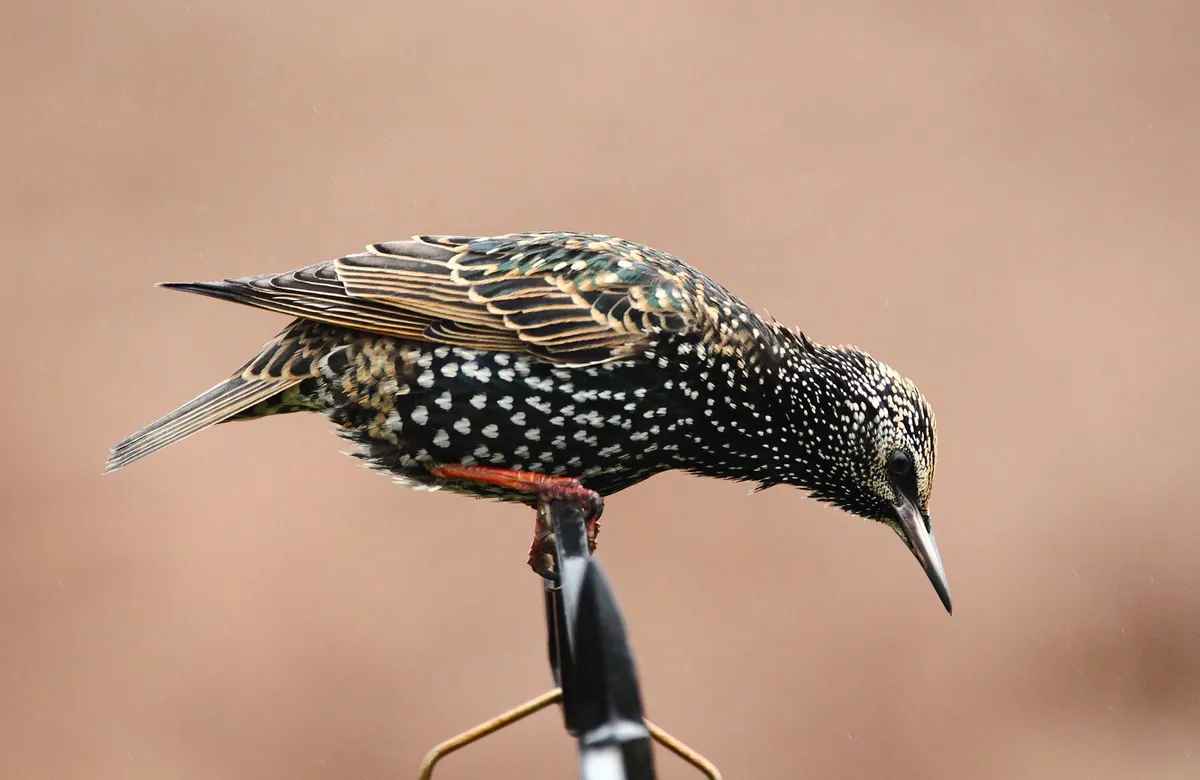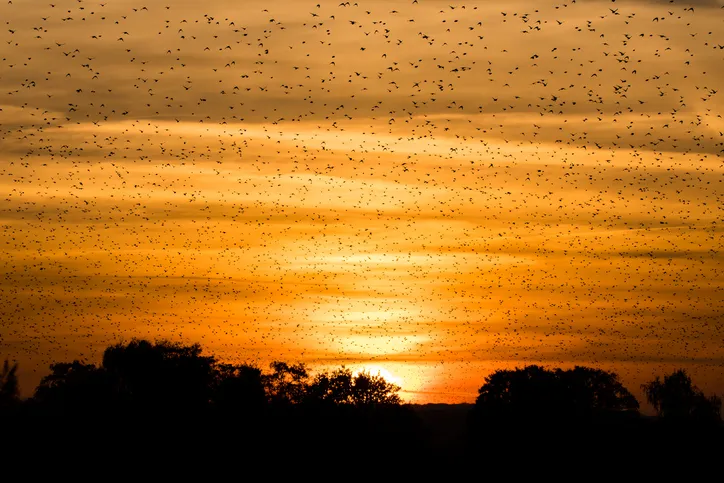Blend a million whirling starlings in a watery landscape stained with legends of kings Arthur and Alfred and you have, arguably, Europe’s greatest wildlife spectacle. In humble Somerset.
It all begins very quietly. Pick a sunny but cold weekday (weekends get very busy and you tend to lose a bit of the magic). From whatever way you approach, you’ll have to thread along bumpy lanes across flat landscapes of stubbly, willow-framed fields, reedbeds springing from black peat and watery ditches – rhynes. The low sun irradiates the reeds and turns the rhynes into snakes of mercury. You’ll already notice groups of starlings on the telephone wires and foraging among the cattle.

The starlings usually roost at Ham Wall, but call the starling hotline (07866 554142) for the latest information before you go.
Park at Ashcott Corner by 3pm and walk along the old railway line – now a broad, well surfaced path – through the middle of the reserve with reedbeds, lagoons and alder carr in every direction and Glastonbury Tor, Avalon of Arthurian myth, looming over proceedings. Aim for the RSPB viewing platform – you’ll see groups of folk already there, with an RSPB warden generously answering questions and pointing out other bird species. With only a little luck you might see great white egrets, marsh and hen harriers, and bitterns.

Starlings at Ham Wall
As the sun fails, the first groups of starlings begin to arrive, parties of tens, hundreds and then thousands. But it’s when the flocks of hundreds of thousands arrive that the show really starts. Suddenly it seems as if the sky is full of birds – all heading to one patch of reedbed. Flock after flock appears, some swirling and contorting as they come, creating epic shapes in the gloaming.
If you’re lucky, the entire population will coagulate into a single writhing entity, dancing and swooping as one. And if you’re really lucky, a peregrine will scythe into the flock, turning it into a panicking shoal of fish fleeing a shark. The sound of the birds’ wings overhead is like a gale through a wood.
Suddenly, as if someone has pulled a plug, the flock will drain into the reedbeed and the birds settle on the stems to roost. I always wonder whether they were performing these same aerobatics when King Arthur hid from the invading Danes in the Somerset marshes 1,200 years ago. He might have had other things on his mind than birdwatching.
Useful Information
HOW TO GET THERE
Ashcott Corner is two miles south of Meare, which lies between Glastonbury and Wedmore on the B3151. Parking is limited.
FIND OUT MORE